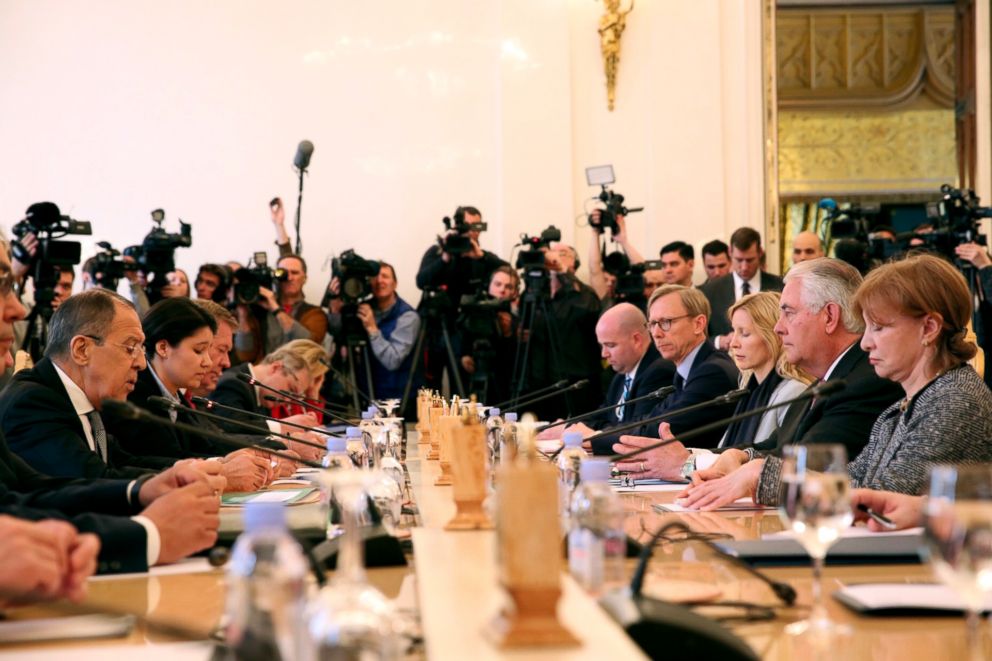Introduction
In the realm of language interpretation, the significance of cultural acquisition cannot be overstated. It goes beyond merely translating service words; it involves understanding the cultural nuances that shape language and communication. This article delves into the pivotal role cultural acquisition plays in the world of Russian interpreters.
Table of Contents
- Introduction
- Understanding Cultural Nuances:
- Cultural Sensitivity in Russian Interpretation:
- Bridging Language and Culture:
- The Role of Context in Interpretation:
- Challenges Faced by Russian Interpreters:
- Benefits of Culturally Acquired Interpretation:
- Perplexity in Interpretation:
- Burstiness in Interpretation:
- The Evolving Role of Interpreters:
- Practical Tips for Russian Interpreters:
- The Impact on Business and Diplomacy:
- Cultural Acumen as a Professional Skill:
- Case Studies:
- Conclusion:
- Frequently Asked Questions:
- How can cultural acquisition enhance the accuracy of Russian interpretation?
- What challenges do Russian interpreters face in terms of cultural differences?
- Is cultural acumen considered a valuable skill in the interpreting profession?
- How can interpreters balance perplexity and burstiness in their interpretation?
- Where can I learn more about the importance of cultural acquisition in interpretation?
Understanding Cultural Nuances:
Interpreters delve into the intricate interplay between language and culture, recognizing that the fabric of expression is woven with cultural threads. Navigating the labyrinth of cultural nuances is not just about decoding words but unraveling the layers of meaning embedded in cultural context. It’s a journey through the subtleties that shape communication, demanding a profound appreciation for the tapestry of diverse human experiences.
Cultural Sensitivity in Russian Interpretation:
Russian interpreter become cultural diplomats, maneuvering through the delicate dance of tradition and norms. Their heightened sensitivity is a shield against unintended missteps, ensuring that the bridge between languages remains sturdy. It’s a commitment to preserving the authenticity of communication, mindful of the nuances that echo through the corridors of Russian culture.
Bridging Language and Culture:
Interpreters emerge as linguistic alchemists, transmuting words into cultural significance. Beyond the linguistic tightrope, they delicately balance the cultural nuances, weaving a narrative that resonates with the spirit of the message. It’s the fusion of language proficiency and cultural insight that transforms interpretation into an art form, capturing not just the words but the soul behind them.
The Role of Context in Interpretation:
Russian interpreters become contextual architects, constructing meaning within the broader landscape of situations. Beyond the spoken words, they decipher the silent cues and unspoken intricacies that shape the narrative. It’s an art of holistic understanding, where context becomes the compass guiding interpreters through the cultural terrain, ensuring accuracy amid the complexities.
Challenges Faced by Russian Interpreters:
Interpreters confront cultural crosswinds, requiring them to navigate through challenges with finesse. Adapting becomes second nature as they bridge the gaps arising from cultural dissonance. The journey involves continuous learning, a dynamic dance with cultural differences, ensuring interpreters emerge not just as linguistic navigators but as cultural chameleons.
Benefits of Culturally Acquired Interpretation:
Cultural acquisition transforms interpreters into cultural emissaries, fostering a connection that transcends language. It’s not merely about conveying words but building bridges of understanding. The bond forged through cultural acumen elevates interpreters from language practitioners to trusted communicators, adding a layer of depth that resonates with clients seeking more than just a verbal exchange.
Perplexity in Interpretation:
Interpreters become maestros of complexity, conducting the symphony of cultural expression with finesse. Balancing perplexity involves unraveling the intricacies without drowning in linguistic intricacies. It’s the art of clarity in complexity, where interpreters navigate the maze of cultural depth, leaving the audience enlightened rather than overwhelmed.
Burstiness in Interpretation:
Interpreters embrace the ebb and flow of dynamic conversations, responding with agility to sudden linguistic shifts. Burstiness is the art of staying attuned to the pulse of dialogue, ensuring the message remains relevant amid the ever-changing linguistic landscape. It’s the ability to surf the waves of conversation, adapting swiftly to keep the communication tide in their favor.
The Evolving Role of Interpreters:
Interpreters morph into cultural ambassadors, transcending the traditional boundaries of language conduits. In a global tapestry of interconnected interactions, they don the hat of cultural integrators, recognizing that linguistic proficiency alone is no longer sufficient. Their evolving role demands a seamless fusion of language and culture, a prerequisite for navigating the intricacies of a diverse and interconnected world.
Practical Tips for Russian Interpreters:
Continuous cultural education becomes the compass guiding Russian interpreters through the ever-shifting landscape. Beyond linguistic prowess, they engage in a cultural odyssey, staying abreast of developments, forging connections with native speakers, and immersing themselves in cultural events. These efforts are not just professional legal translation services rituals but the building blocks of an interpreter’s ongoing evolution.
The Impact on Business and Diplomacy:
Russian interpreters emerge as indispensable architects of international relations, wielding cultural acumen as their cornerstone. In the realm of business and diplomacy, their role extends beyond linguistic mediation to facilitating understanding and trust across linguistic and cultural divides. They become the linchpin in successful negotiations, where the language of diplomacy is spoken not just in words but through the cultural nuances they master.
Cultural Acumen as a Professional Skill:
Cultural understanding transcends the realm of personal traits, evolving into a formidable professional skill for interpreters. It becomes the secret weapon that sets them apart, enhancing job performance, fostering positive client relationships, and establishing simultaneous interpreters as invaluable assets in their field. It’s not just about speaking the language; it’s about speaking the language of culture with fluency and finesse.

Case Studies:
Real-world narratives become the testament to the transformative power of cultural acquisition in interpretation. Case studies unveil instances where cultural understanding catalyzed successful communication, strengthening relationships in the diverse tapestry of human interaction. These stories breathe life into the theoretical, illustrating the tangible impact of cultural acumen on the landscape of interpretation.
Conclusion:
The importance of cultural acquisition for Russian interpreters cannot be emphasized enough. It is not merely an additional skill but a fundamental aspect of effective interpretation. As the world becomes more interconnected, interpreter services who prioritize cultural understanding will stand out and contribute significantly to successful cross-cultural communication.
Frequently Asked Questions:
How can cultural acquisition enhance the accuracy of Russian interpretation?
Cultural acquisition provides a deeper understanding of the context behind language, enabling interpreters to convey messages with greater precision.
What challenges do Russian interpreters face in terms of cultural differences?
Russian interpreters may encounter challenges such as cultural gaps, potential misunderstandings, and the need to navigate unique aspects of Russian culture.
Is cultural acumen considered a valuable skill in the interpreting profession?
Absolutely. Cultural acumen is increasingly recognized as a crucial skill that sets interpreters apart, contributing to their success in the profession.
How can interpreters balance perplexity and burstiness in their interpretation?
Achieving a balance involves capturing the complexity of cultural expression while maintaining clarity and adapting quickly to dynamic conversational shifts.
Where can I learn more about the importance of cultural acquisition in interpretation?
For further insights, consider joining professional organizations, attending cultural events, and engaging in continuous education to stay updated on cultural developments.
